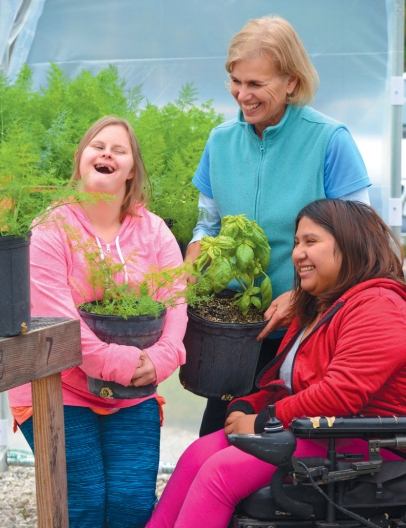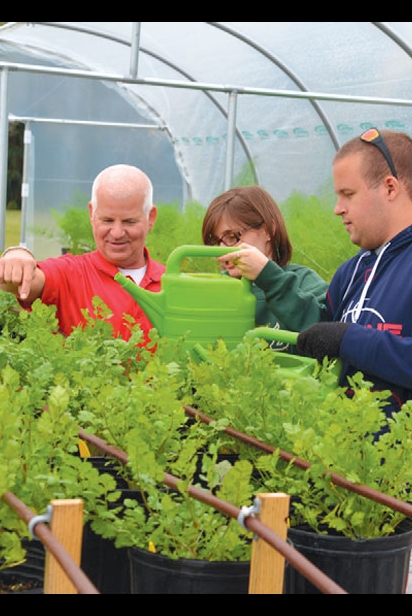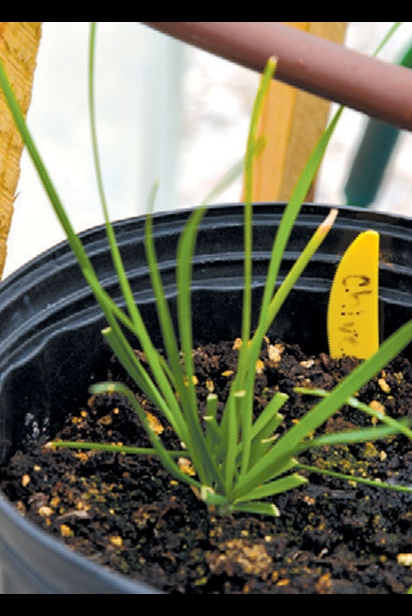Easter Seals and Academy Farms
Inside a dilapidated shade house, staff members at Easter Seals Southwest Florida began cultivating their own flowers and vegetables five years ago. This humble gardening practice evolved into the flourishing program that is now the VIP Academy and Academy Farms—a horticultural resource for students as well as a bona fide produce supplier for area restaurants.
Exceptional people grow the crops at the Easter Seals facility on Braden Avenue in Sarasota. Locales like Soma Creekside Restaurant, Arts & Eats Restaurant and Gallery, and Ortygia Italian Restaurant in Bradenton use them in their menus. It epitomizes the concept of green, local synergy.
“The creation of Academy Farms has allowed us to involve our students in an enterprise that allows them to learn—in a hands-on way—how to start something, nurture it and see it through to completion,” says Don Herndon Jr., the program’s founder and director. “The skills that they learn by doing this are transferrable to just about any life situation or job.”
As a nonprofit organization, Easter Seals provides empowering initiatives for people with disabilities and their families. When Herndon created Academy Farms, he envisioned a sustainable, certified-organic farm that would generate additional revenue for the typically all-donation-funded organization.
The physical, fresh-air activity of gardening is also therapeutic for students with special needs. Adults in Easter Seals’ Life Skills Program and children from Sarasota’s Lily School for Child Development can learn about nutrition, biology, ecology, and the economics of food production in the Academy’s curriculum.
“I am grateful for and humbled by this opportunity to work with our students and consumers on such a worthy project as Academy Farms. The students love working outdoors and learning about all the different aspects of farming,” says teacher assistant Pam Luersen. “They have had unforgettable experiences with nature and have especially relished dining at the fine establishments that are using our organic herbs.”
Academy Farms has undergone several renovations since its inception, including the addition of four 4- by 28-foot raised garden beds with wheelchair-accessible spaces between them. Today, the facilities hold two 14- by 45-foot greenhouses and two hoop houses. Students grow 22 varieties of fruits and vegetables, including corn, tomato, celery, onions, collards, cantaloupe, berries and several organic herbs.
“I like delivering the herbs to the chefs and making sure that we only bag up good herbs,” says one of the Academy Farms students, Amanda. “I like meeting new people and being out in the environment.”
Herndon, every day, is literally watching seedlings turn into blossoms.







